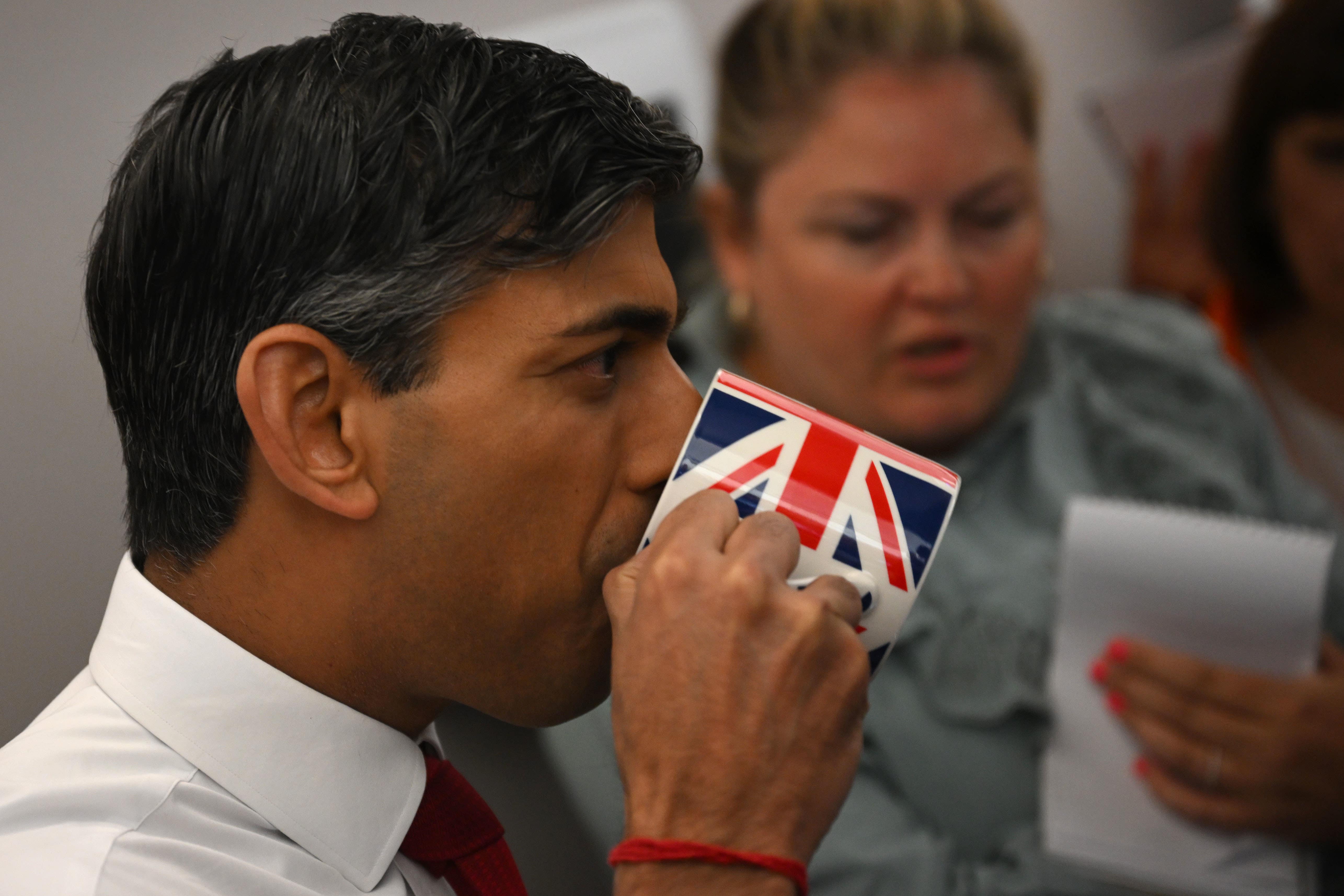‘Tetchy’ Rishi is making enemies abroad… and it won’t win him friends at home
Sparking a silly row over the Elgin marbles has made the PM look less than statesmanlike – and losing his ‘Mr Calm’ reputation is a bad move for him and his party, writes Andrew Grice


Why did Rishi Sunak throw his marbles out of his pram when his Greek counterpart, Kyriakos Mitsotakis, merely restated his country’s long-standing desire to bring home the Parthenon sculptures (known in the UK as the Elgin marbles)?
The only explanation is that Sunak cancelled their meeting to look tough and patriotic – and that he is desperate to find every last pea he can shoot at Labour, who would surely allow the British Museum to loan the marbles to Greece.
Bizarre. I can’t imagine a man in The Dog and Duck turning to his mate and saying: “Did you see what that Keir Starmer did on the Elgin marbles? I’ll never vote for him now.”
Even Tory MPs were baffled, thinking that Sunak’s petulance left the field clear for Starmer to look like a prime minister-in-waiting (again). Sunak needlessly threw away the advantage of incumbency. Some Tories saw it as an example of what they call “tetchy Rishi”, who is sometimes visibly irritated by media questioning. They worry it will show him in an unflattering light in the heat of the election battle.
“He needs to be the Rishi who brought stability, the Mr Calm who voters know saved their jobs in the pandemic,” one former minister and Sunak loyalist told me.
In cancelling his meeting with Mitsotakis, Sunak undermined one of his genuine achievements – rebuilding bridges with EU leaders after those relationships were blown up by Boris Johnson. It’s self-defeating because he needs their support to tackle the small boats crisis. (Starmer has quietly invested time in forging good relations with EU leaders, and Labour figures are privately hopeful he would land an agreement with the EU to return migrants.)
Sunak also risks losing such cooperation by flirting with proposals to dilute the UK’s commitment to the European Convention on Human Rights (ECHR) to try to salvage his government’s flawed scheme to send asylum seekers to Rwanda. He should think again. Opting out of or leaving the ECHR would severely harm relations with the US (which Sunak has made his top foreign policy priority), as well as EU countries.
There’s a pattern of behaviour here. Sunak will repeat the mistake of playing to the domestic gallery when he briefly attends the Cop28 summit in Dubai on Friday. He will inevitably claim the UK has a good record on climate change, but the country’s image as a global leader has been tarnished by his decision to water down net zero commitments – again, for domestic consumption.
Nicholas Stern, the crossbench peer who wrote a landmark 2006 review on climate, said: “We are now internationally regarded as backsliding…That encourages other people who don’t want change and encourages them to raise their voices more loudly. It encourages the oil and gas companies to resist more strongly.”
Alok Sharma, the Tory who chaired Cop26 in Glasgow when the UK was still showing strong leadership, said its international partners have “concerns” about Sunak’s stance. Theresa May, who wrote the “net zero by 2050” commitment into law (something Sunak would never have done), believes the government should be phasing out fossil fuels, rather than issuing oil and gas licences – another attempt to create a dividing line with Labour.
Allies hoped Sunak’s attack on what David Cameron once called “green crap” would be a game-changer, but it proved another false dawn. While voters are wary about the cost to them of the green transition, climate is regarded as a top issue by more people than cite the small boats.
Sunak’s various moves have not dented Labour’s 20-point lead in the opinion polls. Foreign leaders are fully aware of his weak domestic position. Indeed, Greek ministers claimed he cancelled Mitsokatis because the Tories were behind in polls and “in a bind”.
One theory is that “tetchy Rishi” was miffed the Greek PM was to meet Starmer, but that is something Sunak will have to get used to. Fellow leaders respect each other until they lose power, but know they all have a shelf life so want good relations with whoever is coming next. It’s not a breach of protocol to meet an opposition leader.
It was instructive that leaders of 35 major global companies chose to meet Starmer before they attended Sunak’s foreign investment summit on Monday. Their talks rained on the PM’s parade at Hampton Court Palace.
Despite his increasingly desperate appeals to domestic voters, the tide is going out for Sunak.





Join our commenting forum
Join thought-provoking conversations, follow other Independent readers and see their replies
Comments